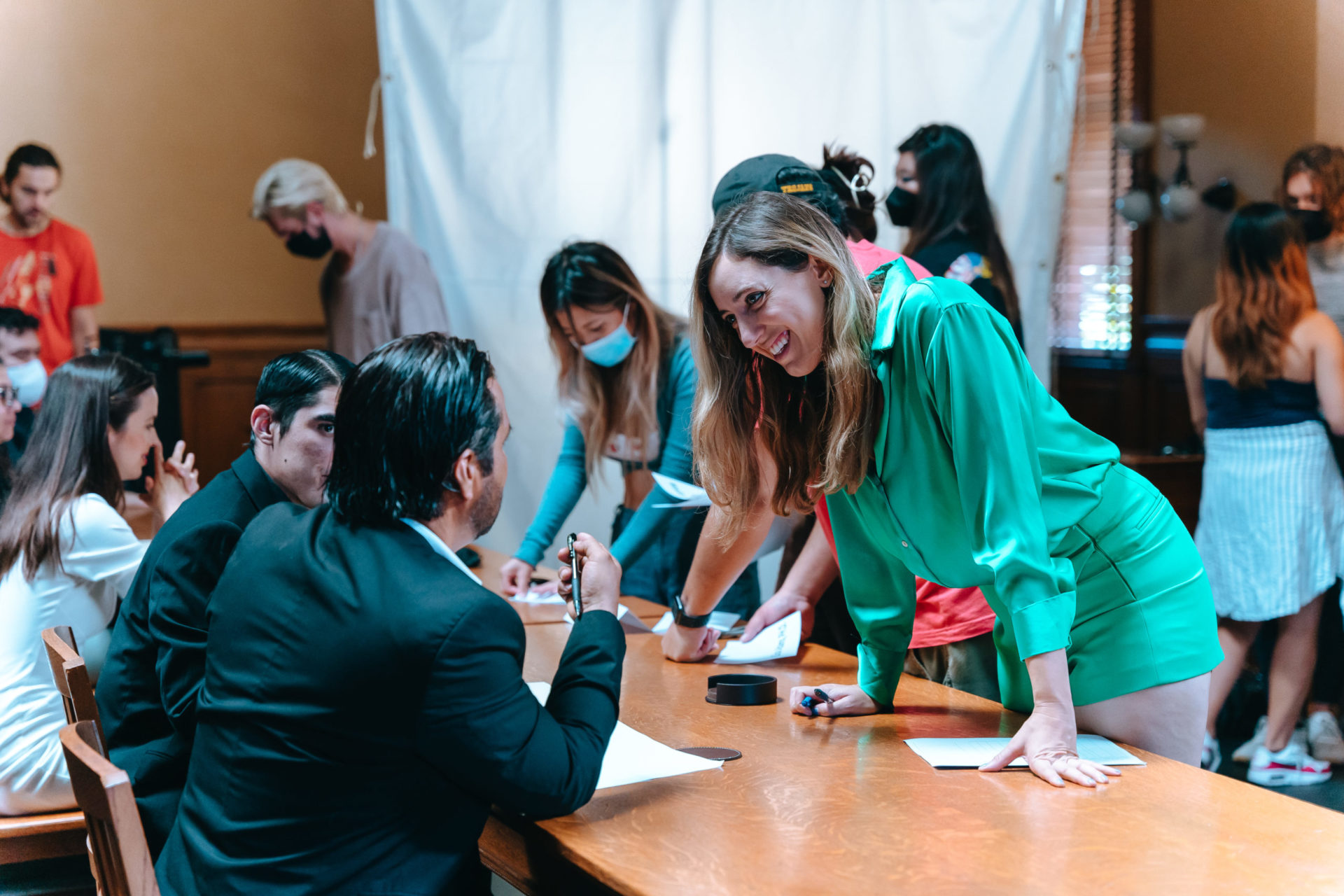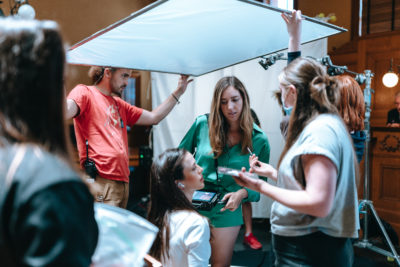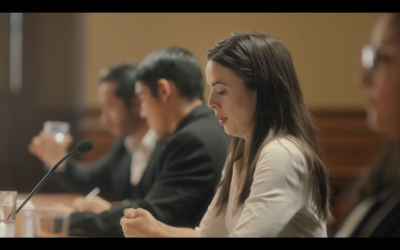
Backlog: A Short Film With An Imperative Message
Film Interviews
Content warning: This article addresses issues of sexual violence and consent. Please take that in advisement as you read and share.
A college party, a dingy bathroom, dorm rooms and a senate hearing. What do these things have in common? They’re all featured in the groundbreaking short film Backlog.

Directed by recent University of Southern California (USC) graduate Jacqueline Elyse Rosenthal, Backlog is about a young woman named Mallory (Jill Renner) who is brutally raped by someone she met at a party. Mallory reports the crime to the police and sees a doctor in order to submit a rape kit for evidence. The rape kit is never tested, and thus the perpetrator is never caught or prosecuted. Mallory eventually uses her experience to testify in front of a Senate committee in order to end what is referred to as the “backlog”—an ever-growing list of untested and therefore unsubmitted rape kits.
A haunting shot of boxes and boxes of sexual assault evidence precedes Backlog’s opening credits. The film is shocking, upsetting and unfortunately based on a true story, though it isn’t one without hope. Writer/director Jacqueline Elyse Rosenthal says the film is based partially on her own undergraduate experience – though her experience draws from when she completed her first degree at a different university than USC).
Backlog maintains its emotionality without becoming sappy. Like many of Gerwig’s films, Backlog balances sincerity with a roller coaster of feelings and goes to great lengths to legitimize women’s experiences on screen. This was clearly important to Rosenthal, who easily articulates and discusses her artistic vision and reasoning for making the film. “The reason that I made this film is that, when I went through this, I never saw [sexual assault] portrayed in the media where it was as severe as what happened,” Rosenthal says. “I constantly felt like maybe I was misrepresenting what happened to me, and maybe I was making it a bigger deal than it had to be.”

By Rosenthal’s own admission, the short is a “social impact film,” meant to incite action. The film premiered in Cleveland, Newmann’s hometown, in March of 2023. During the Q&A, for which both creators were present, a viewer requested that a petition be made with the hopes of ending the backlog and demanding new legislation that will include the timely examination of rape kits. A QR code that links to said petition is now included in the film’s credits.
Part of Mallory’s story is also based on Valerie Newmann’s blog and life experience. Newmann is a victim of sexual assault who submitted a rape kit that was never tested. Like Mallory, Newmann became an advocate for other victims and was eventually able to testify in front of United States lawmakers on their behalf. One of Newmann’s primary goals is to end the backlog of untested rape kits. After coming across Newmann’s blog and official Senate testimony, Rosenthal wrote a draft of the story and sent Newmann an email. “I was very nervous,” Rosenthal says. “[Valerie] has six kids, so it was hard to find the right time … When she came on the screen it was just like talking to a best friend.”
With help from Newmann, Rosenthal began the hunt for creative collaborators. Backlog was made as part of Rosenthal’s Master’s degree and thus gave her access to USC alumni for most of her staffing needs. Rosenthal says that it was extremely important to choose a crew that understood and took the story as seriously as possible because of her artistic intentions and personal involvement in the story.
Backlog is an emotional piece of work, and the plethora of feelings are nearly tangible. Rosenthal cites The Graduate, A Beautiful Mind and Greta Gerwig’s films among her artistic influences. The Graduate was also filmed on USC campus, and Rosenthal drew from the loneliness she saw in Dustin Hoffman’s character. Likewise, she strove to emulate the isolation Russell Crowe’s character feels in A Beautiful Mind. Gerwig’s films (Rosenthal mentions Little Women in particular) are where Backlog draws on its sense of loss of innocence. Rosenthal looks up to Gerwig precisely because of her emotional filmmaking, she says.
Backlog was recently screened at the Cannes Film Festival in France. Rosenthal says the event and screening were among the best moments of her life and that response to the film was powerful, even to the point of Rosenthal being thanked by audience members. Both Rosenthal and Newmann have since agreed that both the story and the issue need expounding upon. The two plan on eventually creating a feature based on the short film.
Backlog is currently unavailable to stream and can be seen on June 25 at the Nevada Women’s Film Festival and June 30 to July 2 at the Hot Springs International Women’s Film Festival. Rosenthal says she is in talks with distributors and will hopefully be able to get the story in front of as many people as possible.
To sign the petition to end the backlog, head to change.org/p/backlog-a-petition-to-reform-our-judicial-system-s-approach-to-sexual-assault-survivors.
Read more film interviews right here:
Traveling to New Orleans, Schmicago and The Planet of The Apes with Karin Konoval
Oh Baby! How Brooke Trantor Explores the Female Experience